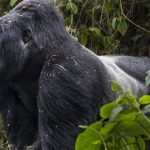This portal brings you all facts about Uganda – the ‘Pearl of Africa’ (according to Sir Winston Churchill), about the political, social, economic and cultural lifestyles. Named after Buganda Kingdom where the capital city Kampala is located, she was governed by the British as a Protectorate from 1894. She gained her independence from the British on 9th October 1962. Since then the country has witnessed turbulent times including an 8 – year long dictatorship by president Idi Amin Dada.
Why Uganda is ‘The Pearl of Africa’
Sir Winston Churchill nicknamed Uganda “The Pearl of Africa” in 1908, to vividly demonstrate the spectacular and undisturbed nature of this country. Uganda is home to more than half of the world’s remaining mountain gorillas found in Bwindi Impenetrable national park. She is known as the source of the world’s longest river, the Nile; great spectacular Murchison Falls and diverse natural wildlife reserves and parks.
Kampala – the capital
The name ‘Kampala’ is derived from ‘the hills of the Impala’ which is an antelope specie that was common in this area. In the Luganda language they referred to it as ‘Kasozi ka Impala’. Whenever the Buganda king would step out to hunt, his subjects would say, ”Kabaka e ka empala” (meaning the King has gone to Ka’mpala).

Kampala is the largest and capital city of Uganda with an estimated metro population of 3,846,000 in the year 2023. She is divided into 5 political divisions, namely: Kampala Central, Makindye, Rubaga, Nakawa and Kawempe. Economically the city’s GDP in 2015 was $13.80221 billions which is more than a half the country’s GDP of that very year.
Uganda Government
Uganda is a former British Colony. The people in this country highly espouse English culture and language. Currently the National Resistance Movement is the ruling party under the stewardship of His Excellence, Yoweri Tibuhaburwa Kaguta Museveni.
Constitution: Ratified July 12, 1995; promulgated October 8, 1995.
Independence: October 9, 1962.
Branches: Executive–president, vice president, prime minister, cabinet. Legislative–parliament. Judicial–Magistrates’ Courts, High Court, Court of Appeals (Constitutional Court), Supreme Court.
Administrative subdivisions: 121 districts.
Political parties: 38 registered parties. Major political parties include the National Resistance Movement (NRM, the ruling party), National Unity Platform (NUP), Forum for Democratic Change (FDC), Democratic Party (DP), Conservative Party (CP), Justice Forum (JEEMA), Uganda People’s Congress (UPC), among others.
National holiday: Independence Day, October 9.
UGANDA’S GDP: 25.53b USD (2016)
Natural resources: Copper, cobalt, hydropower, limestone, salt, phosphate, oil.
Agriculture: Cash crops–coffee, tea, cotton, tobacco, cassava (tapioca), potatoes, corn, millet, cut flowers. Food crops–bananas, corn, cassava, potatoes, millet, pulses. Livestock and fisheries–beef, goat meat, milk, poultry, Nile perch, tilapia.
Industry: Processing of agricultural products (cotton ginning, coffee curing), cement production, light consumer goods, textiles.
Trade: Exports (2009)–$3.1 billion: coffee, fish and fish products, tea, tobacco, textiles, cement, maize, electricity. Major markets–EU, Sudan, Kenya, Democratic Republic of the Congo, Switzerland, Rwanda. Imports (2009)–$4.3 billion: petroleum, road vehicles, cereals, industrial machinery, iron and steel, medical/pharmaceutical supplies. Major suppliers–EU, United Arab Emirates, Kenya, India, China. Japan
Fiscal year: July 1-June 30.








